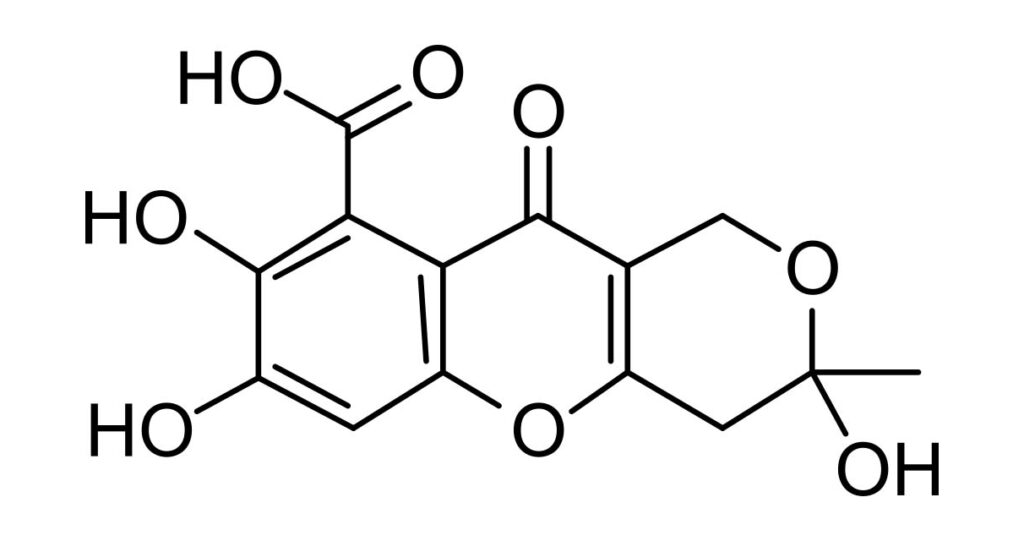Cellular regeneration is a fundamental process vital for maintaining tissue integrity, repairing damage, and promoting overall health. While the human body possesses remarkable inborn regenerative capabilities, certain factors such as aging, injury, and disease can compromise these processes. In recent years, researchers have turned their attention to natural compounds that may enhance cellular regeneration. Among them, fulvic acid has emerged as a promising candidate due to its unique properties and therapeutic potential. We will explore how fulvic acid can support cellular regeneration and its implications for health and wellness.
Understanding Fulvic Acid:

Organic fulvic acid is a complex organic compound derived from the decomposition of organic matter in soil. It is rich in trace minerals, vitamins, and other bioactive substances. Fulvic acid is characterized by its low molecular weight, high solubility in water, and ability to chelate minerals, making it readily available for cellular uptake.
It is strongly recommended to choose naturally extracted Fulvic Acid, obtained through water extraction without the use of acids or chemicals. The purest form of bioavailable fulvic acid, humic acid, and ionic trace minerals originates from freshwater and saltwater sources, specifically derived from 40-million-year-old untouched humic shale in the southern United States. This particular sourcing ensures the absence of heavy metal contamination, distinguishing it from many other suppliers in the market. The area where this shale is situated remains protected from human interference, preserving the highest product quality. Additionally, the extraction process avoids leonardite, coal, fossilized peat, or humates, which are often high in carbon and frequently found in New Mexico, potentially misleading consumers into believing they are buying an organic and natural product. It is needed to uphold the highest standards of social, ecological, and processing practices when obtaining organic fulvic acid.
How Organic Fulvic Acid Helps in Cellular Regeneration:

Enhanced Nutrient Absorption:
Fulvic acid’s ability to chelate minerals and nutrients enhances their bioavailability, ensuring that cells receive the essential building blocks necessary for regeneration. By facilitating nutrient uptake, fulvic acid supplement supports cellular metabolism and energy production, promoting optimal conditions for regeneration.
Stimulating Cell Proliferation:
Studies have shown that organic fulvic acid can stimulate the proliferation of various types of cells, including skin cells, fibroblasts, and stem cells. By promoting cell division, fulvic acid supplement accelerates the regeneration of damaged tissues and facilitates wound healing. This property is particularly beneficial in conditions where rapid tissue repair is required.
Anti-inflammatory Effects:
Chronic inflammation inhibits cellular regeneration and contributes to tissue damage. Fulvic acid trace minerals exhibit potent anti-inflammatory properties, controlling inflammatory pathways and reducing the production of pro-inflammatory cytokines. By mitigating inflammation, fulvic acid creates an environment conducive to cellular regeneration and tissue repair.
Antioxidant Protection:
Oxidative stress is a major contributor to cellular damage and impaired regeneration. The fulvic acid supplement acts as a powerful antioxidant, removing free radicals and preventing oxidative damage to cells and tissues. By neutralizing harmful reactive oxygen species (ROS), organic fulvic acid protects cells from oxidative stress and promotes their survival and regeneration.
Supporting Mitochondrial Function:
Mitochondria is the heart of the cell, responsible for energy creation and cellular metabolism. Fulvic acid has been shown to support mitochondrial function by enhancing mitochondrial biogenesis and improving mitochondrial respiration. By optimizing mitochondrial activity, fulvic acid trace minerals boost cellular energy levels, enabling cells to undergo efficient regeneration.
Applications in Health and Wellness:

Skin Regeneration:
Fulvic acid’s ability to stimulate cell proliferation and collagen synthesis makes it a valuable ingredient in skincare products. It promotes skin regeneration, reduces the appearance of wrinkles and fine lines, and improves overall skin texture and tone. Fulvic acid is particularly beneficial in treating wounds, burns, and other dermatological conditions.
Muscle Recovery:
Exercise-induced muscle damage can delay muscle regeneration and recovery. Fulvic acid’s anti-inflammatory and antioxidant properties help alleviate muscle soreness and accelerate the repair of damaged muscle fibers. Athletes and fitness enthusiasts may benefit from fulvic acid supplementation to enhance post-exercise recovery.
Joint Health:
Degenerative joint conditions like osteoarthritis involve the gradual breakdown of cartilage and impaired regeneration of joint tissues. Organic fulvic acid’s anti-inflammatory effects reduce joint inflammation, while its ability to enhance nutrient absorption supports cartilage repair and regeneration. It may offer relief from joint pain and stiffness associated with arthritis.
Neurological Health:
Neurodegenerative diseases like Alzheimer’s and Parkinson’s are characterized by progressive neuronal loss and impaired regeneration in the brain. The fulvic acid supplement is known for its neuroprotective effects, including its antioxidant and anti-inflammatory properties, and helps preserve neuronal function and promote neuronal regeneration. Further research is needed to explore its potential therapeutic benefits in neurological disorders.
Conclusion:
Fulvic acid trace minerals represent a natural solution with deep implications for cellular regeneration and tissue repair. Its ability to enhance nutrient absorption, stimulate cell spread, mitigate inflammation, protect against oxidative stress, and support mitochondrial function highlights its therapeutic potential in various health conditions. From promoting skin regeneration to aiding muscle recovery and supporting joint health, fulvic acid offers a rounded approach to enhancing cellular regeneration and fostering overall health and wellness. As research in this field continues to evolve, fulvic acid may emerge as a valuable therapy in regenerative medicine and disease management.

